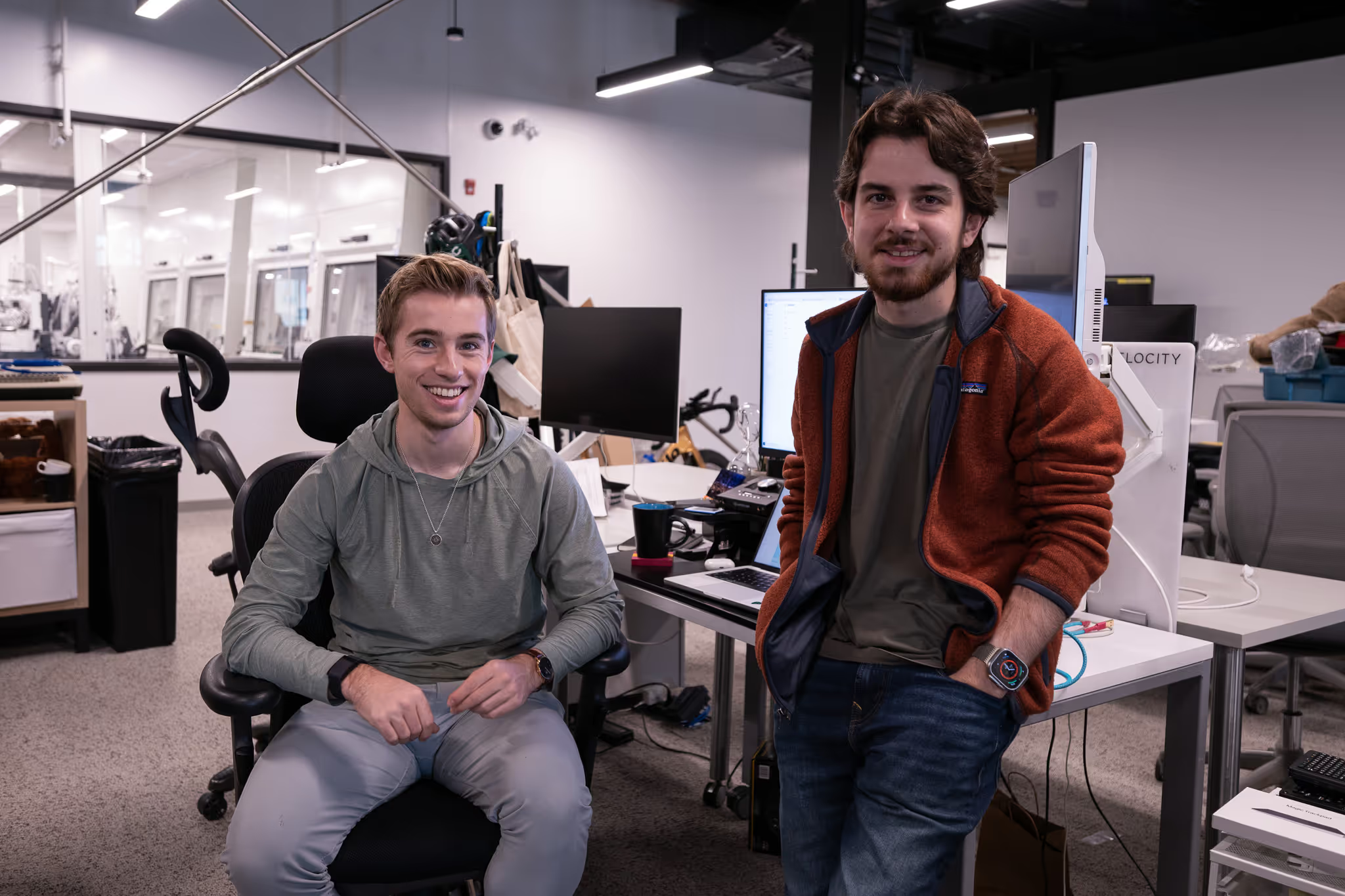Calling it a steep learning curve doesn’t quite cut it.
“It’s steeper than rock climbing,” offers Danielle Rose, the CEO and a co-founder of Ceragen.
Rose never expected to become a farmer, but getting her hands dirty has helped her better understand the issues at the roots of the agricultural industry while moving her business to the next level.
Ceragen planted its first test crop in a pop-up grow tent inside Velocity in 2022, and has now grown into a 1.6-acre greenhouse in Elmira, Ontario. The move enabled the company to do large-scale testing and provide demonstrations of its “probiotics for plants” that can increase crop yields in hydroponic fruit and vegetable production by up to 10 per cent. The product, which Rose says looks like apple cider vinegar, boosts beneficial bacteria and fungi to help the plants in various ways, including up taking nutrients more effectively and being more resilient to environmental stresses.
Rose is currently focused on testing application rates: Is it better to apply the microbes every two weeks, every month, or even less frequently? But there are lessons on farming each day and Rose is abuzz with technical information and tricks of the trade, from the complicated physics required to truly optimize a greenhouse to what she describes as “bug-on-bug warfare,” as she lifts some leaves to introduce an army of predatory insects that protect her crops from pests.
“It's gotten us a lot of street cred among growers,” Rose says of Ceragen’s move to the greenhouse. She has seen farmers who say they are inundated with pitches from companies that will quickly disappear, or pitching products that simply don’t work.
“It's not until you're around for a couple of years where people start to actually take you seriously,” she adds.
Velocity supports founders in going beyond the classroom and lab and putting their research to the test. Taking the lessons Rose and her brother and co-founder, Matthew Rose, took from Velocity’s rich founder community, they are now operating at a “proof-of-concept” scale that can be replicated by other farmers.
“Greenhouse production produces 10 times more kilograms of food per meter squared than field production,” she says of the cucumbers, lettuces, peppers, and tomatoes that Ceragen grows. “When we start talking like eight versus 80 cucumbers, that's a big difference.”
The practice of growing under glass protects Canadian crops from our shorter growing season and at-times volatile weather swings.
Committing more effort and funds to the greenhouse industry could make the future look brighter for grown-in Canada agriculture. Ceragen’s microbes can ensure the country gets more bang for its buck by producing a supply chain that is more consistent in both quantity and quality.
“We're going to need to invest in greenhouse technology as a globe to be able to feed our populations in the face of climate change and food insecurity,” Rose says.
Global outreach
Many Canadians don’t know it, but the country’s green house industry is already huge.
Ontario produced 521 million kilograms of tomatoes, cucumbers, and peppers under 4,100 acres of glass in 2024, representing at least 90 percent of the greenhouse vegetable industry’s contribution of $2.3 billion to Ontario’s GDP. “Canada, if they spend time and energy into building out this sector, could become an exporter of that technology globally,” Rose states.
Strawberry and lettuce production each grew by eight per cent in 2024, reports Statistics Canada. The fact that Canadian greenhouses were already diversifying before the uncertainty and unexpected costs caused by this year’s huge U.S. tariffs should serve as encouragement. The country can be more self-reliant and enter a new era in farming, developing new techniques and tweaking existing practices to produce a greater variety of crops inside and outside its borders.
Rose knows the risks of entrepreneurship well as she continues to scale the cliff face of greenhouse farming. But, with a facility primarily dedicated to fine-tuning Ceragen’s product and providing demonstrations to growers, it seems Rose may be closer to the top than she thinks. With more tech companies like Ceragen, Canada’s greenhouses could be set for a fertile future.
“We're just going to keep solving problems as we can,” she says.“We want to help these growers increase their crop yields and continue to make them more efficient and more profitable.”
















